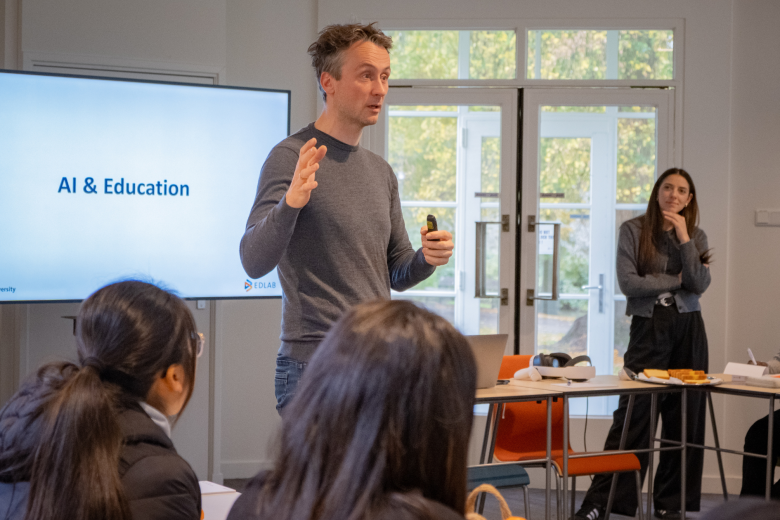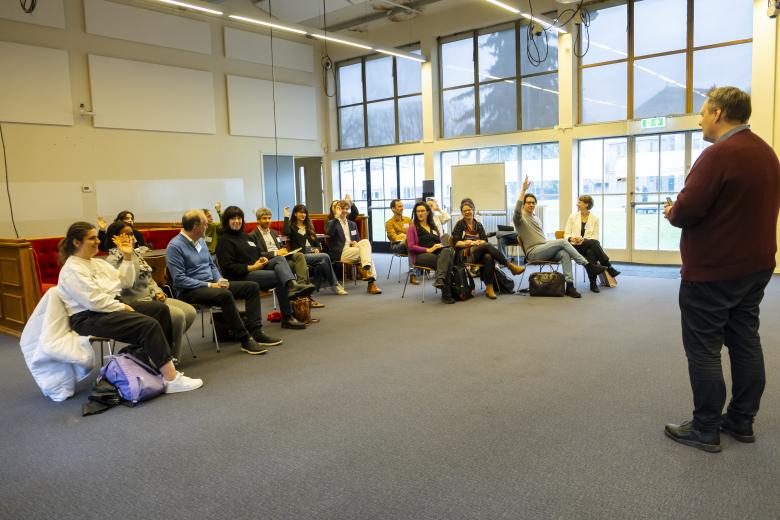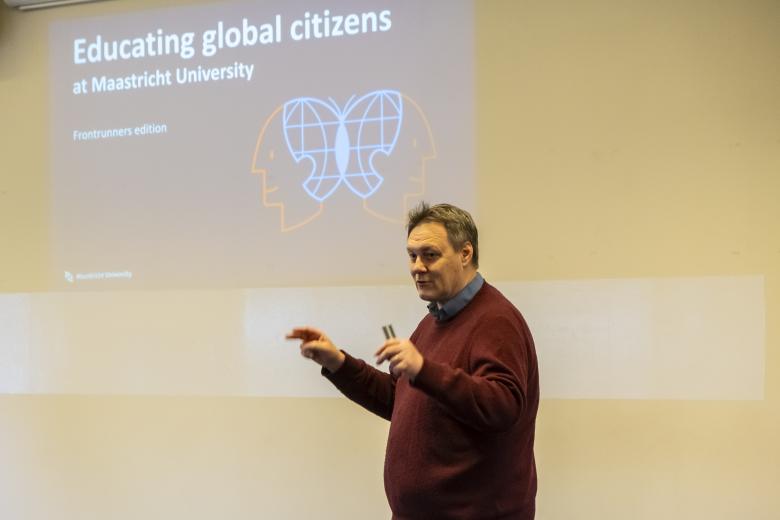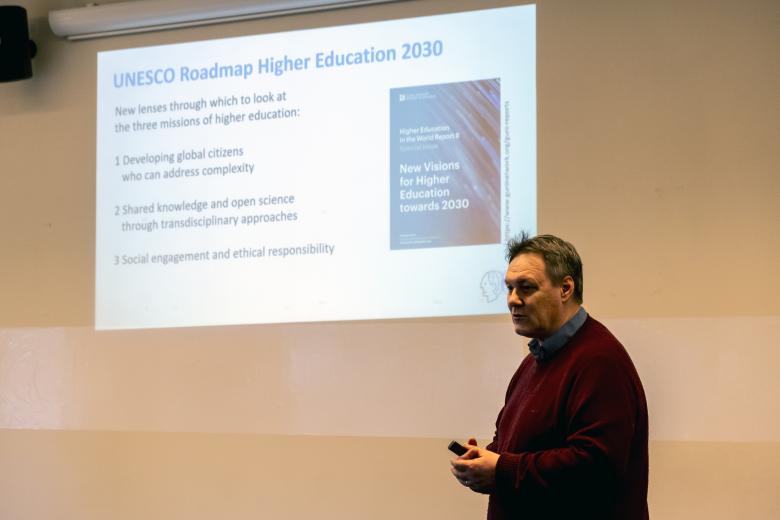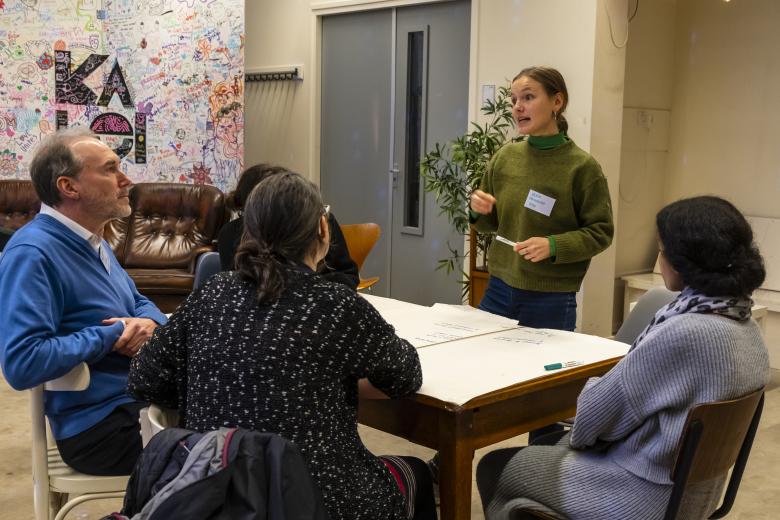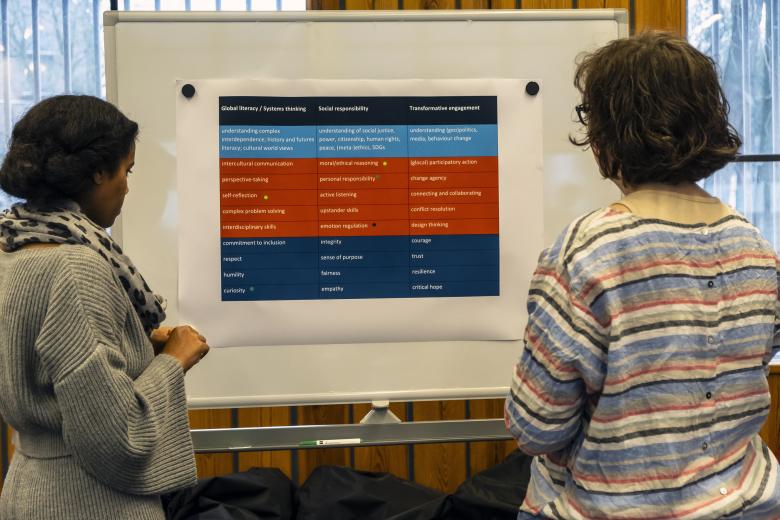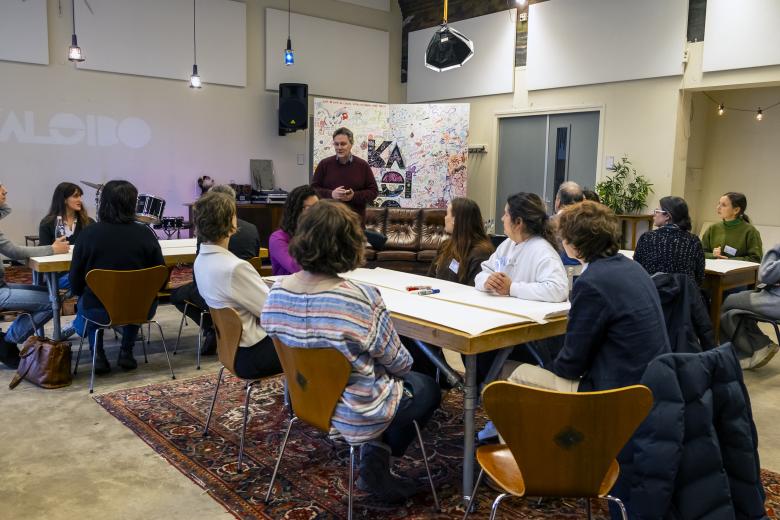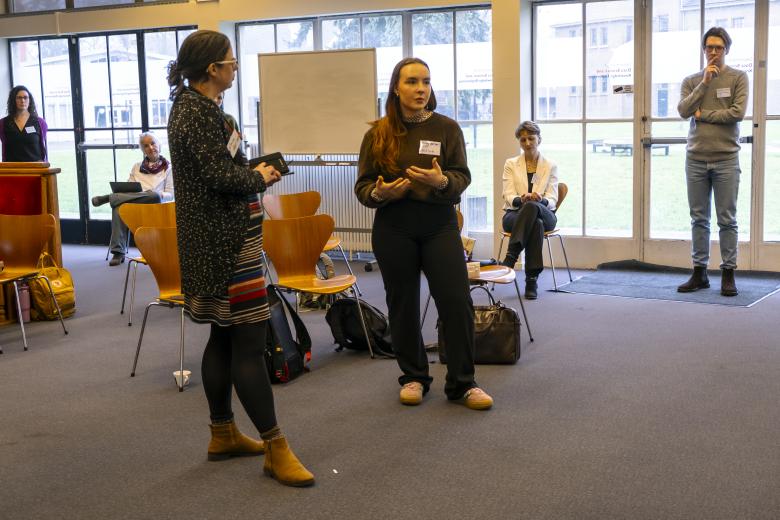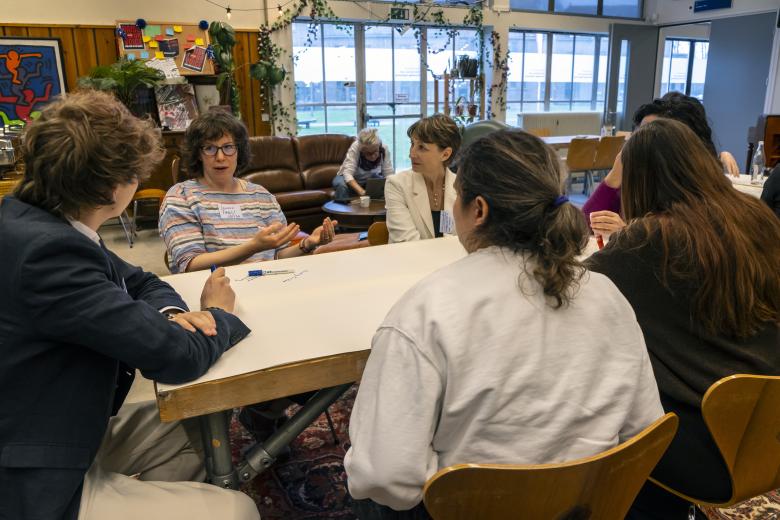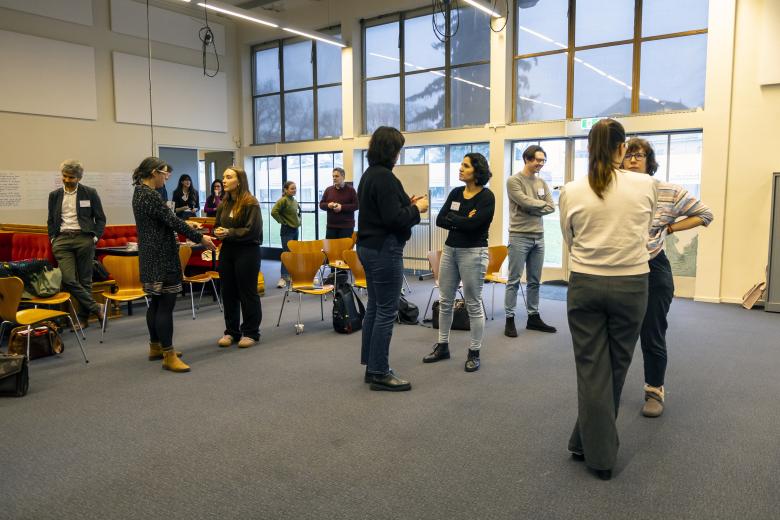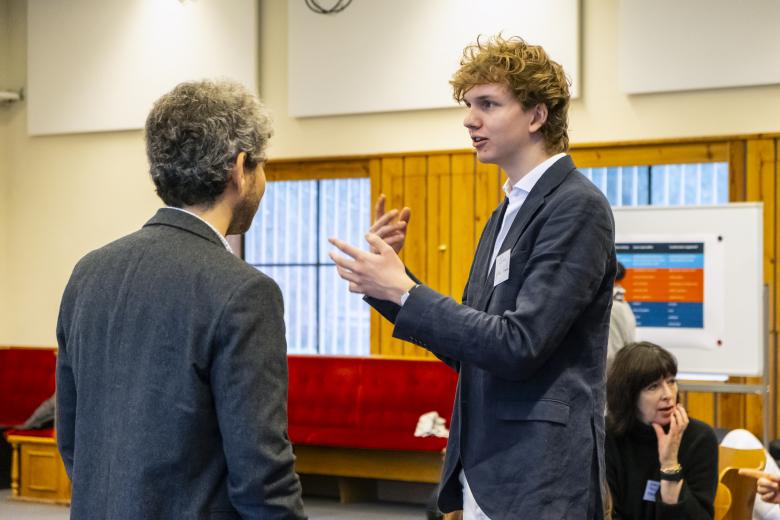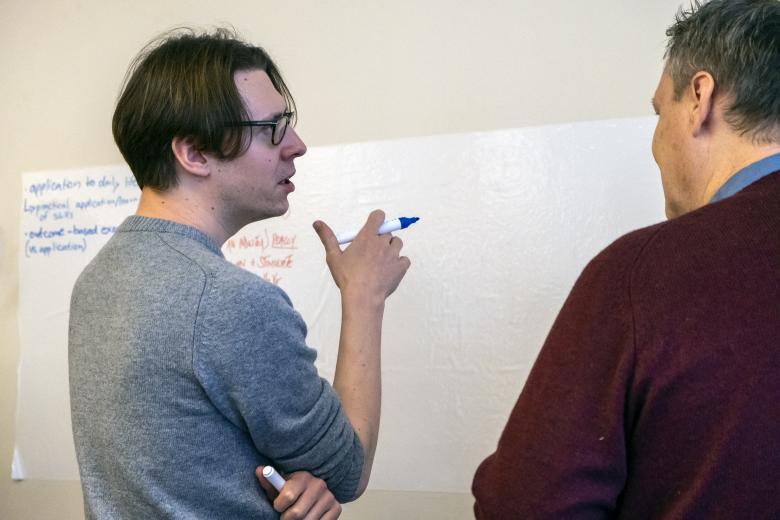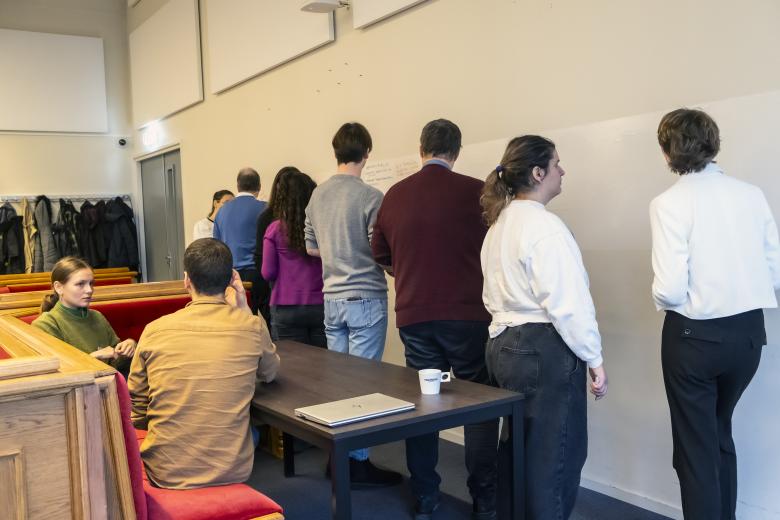Making global citizenship real at Maastricht University
On 30 January 2025, coordinators and students from eight pioneering UM programmes met at Kaleido to discuss how Global Citizenship Education (GCEd) fits into higher education. They shared their frustrations, hopes, and ideas for change.
What’s holding teachers and students back?
Teachers feel stuck in a rigid system. They struggle with limited flexibility, little time for meaningful feedback, and financial barriers to extracurricular activities. They worry about a lack of diversity among staff, too much focus on employability, and too little space for empathy, global perspectives, and real-world problem-solving. Some questioned whether universities are even designed to support the values of GCEd.
Students, meanwhile, feel disconnected. They see little cultural and intellectual diversity in their learning environments. They criticised the shallow way empathy is included – often mistaken for agreement – and the slow pace of decolonial and inclusive reform. Many feel the university is too focused on individual success instead of community-driven learning.
Big ideas, bold solutions
Despite these frustrations, the discussion sparked ideas for change.
Teachers want more freedom to experiment with curricula, linking local and global issues in meaningful ways. They see potential in stronger ties with alumni, more critical debate, and smarter use of AI to support global values.
Students want to be heard. They want external voices in the classroom, open discussions, and an education system that values disagreement and diversity.
The core issue? Teachers want the flexibility to teach in a way that matters. Students want a shift in culture – to be recognised as contributors, not just learners.
Turning talk into action
Students and teachers agreed that GCEd shouldn’t be a separate topic. It should be part of everyday learning.
They proposed:
- Building GCEd skills into courses through service learning, community projects, and cross-faculty collaboration.
- Creating better ways for teachers to work together and share ideas.
- Involving alumni with experience in anticolonial and inclusive approaches.
- Providing better resources, translation tools, fairer admission processes and more supportive onboarding for international students.
- Offering free Dutch language classes and stronger links to local communities.
Global Citizenship Education needs to be more than a concept. It should shape what we learn, how we learn, and who gets to be part of the conversation.
Text by Herco Fonteijn.
Event photo gallery
Also read
-
Teacher Information Points at UM
UM faculties now host Teacher Information Points (TIPs) that offer local, “just-in-time” and on-demand support for teaching staff. The aim is simple: to provide help that is closely connected to day-to-day teaching practice.

-
As a teacher, how confident are you in your digital skills? Discover your capabilities in just 25 minutes
Maastricht University invites all teaching staff to take part in the Jisc Discovery Tool pilot to explore your digital strengths.
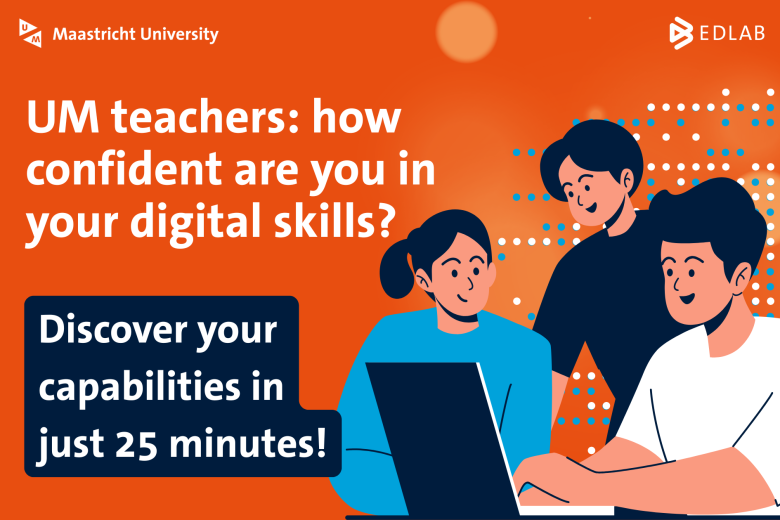
-
UWC Maastricht students get a taste of education innovation at EDLAB
On 21 October 2025, EDLAB hosted students from United World College Maastricht for the second year in a row, as part of their Youth Social Entrepreneurship programme.
